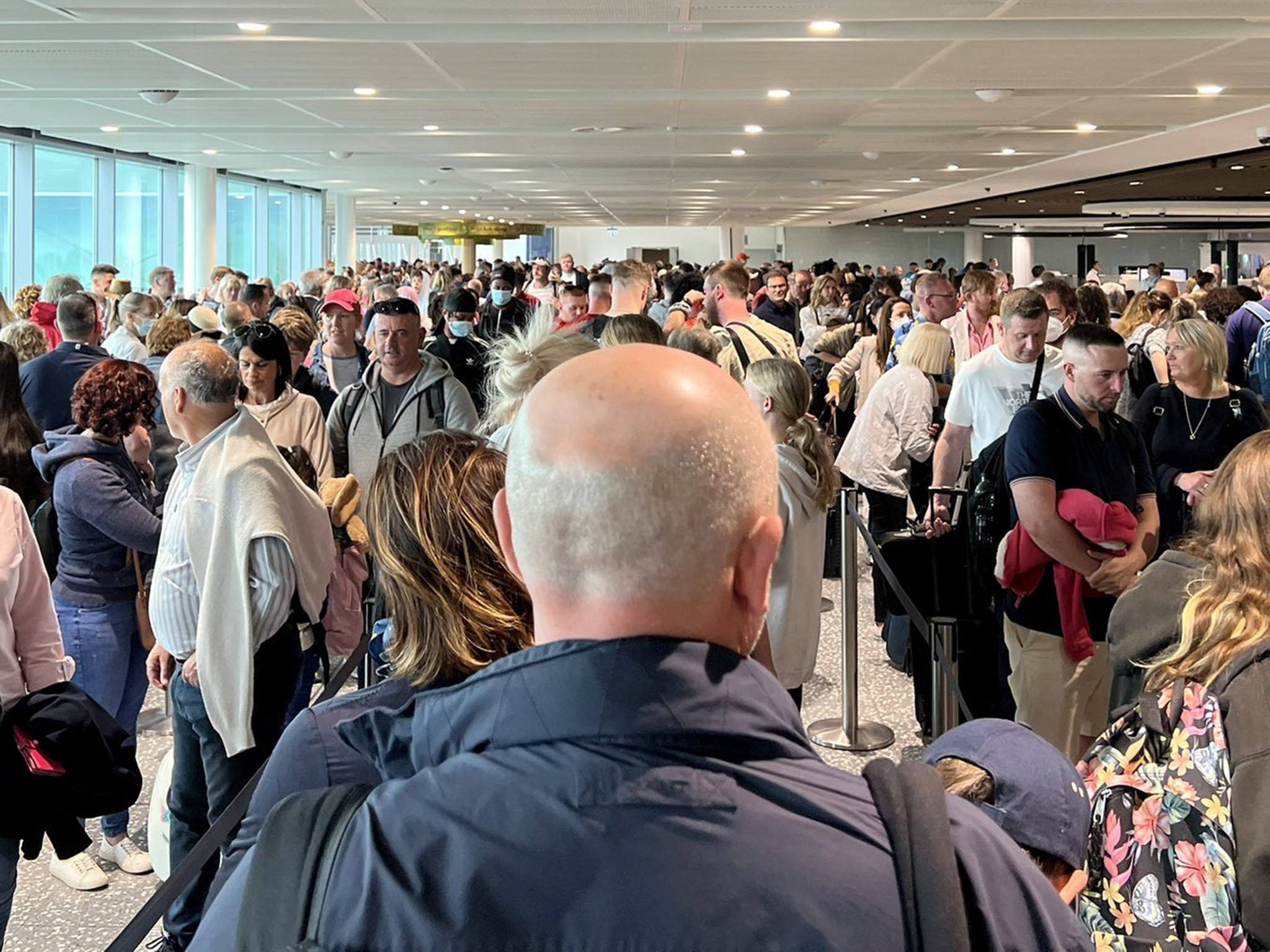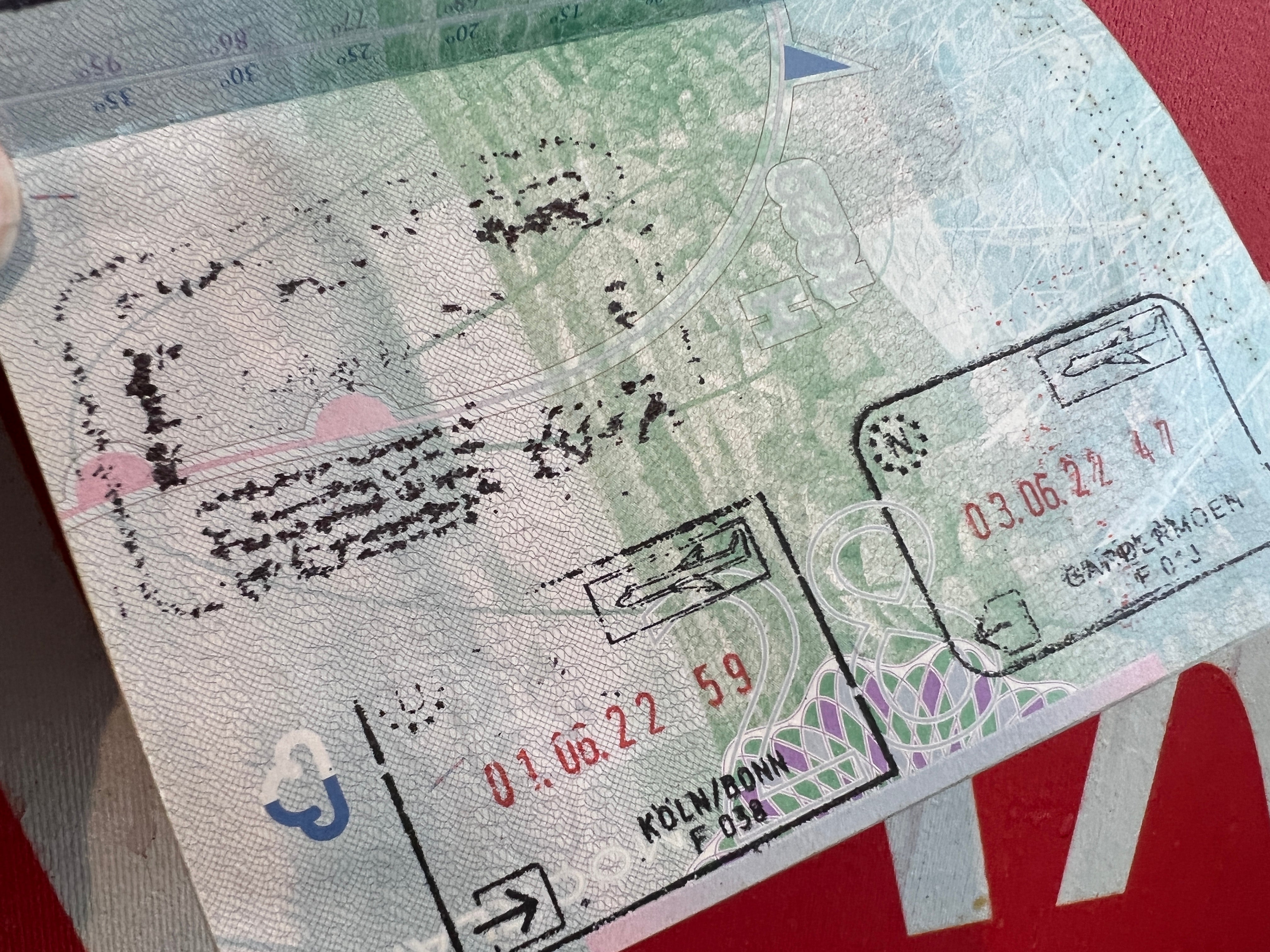Will the travel chaos be over in time for our summer break?
Simon Calder answers your questions on travel turmoil, package holiday support and UK/EU passport rules


Q As someone with a normal package holiday to Mallorca booked for the family in July, I have been watching the unfolding travel chaos with alarm. Do you think the aviation industry will have sorted itself out by next month?
Laurence A
A The weekend was indeed awful for tens of thousands of travellers. We saw more than 200 flights to and from the UK cancelled. Many of them were holiday flights serving Mallorca and the rest of Spain, plus Portugal, Italy, Croatia, Greece and Turkey. Such was the scale of the chaos that many are still stranded abroad. While airlines are responsible for providing hotels and meals, people with commitments at home are desperate to return swiftly, but the sheer numbers involved mean getting everyone where they need to be will take several days.
The causes of the cancellations are complex; some are due to a power failure affecting inbound flights to Luton on Sunday morning, while others involve air-traffic control delays prompted by the storms over France. But at the root of most of them is staff shortage at the airlines and ground handlers.
History tells us that aviation disruption can spring from all kinds of misfortune, and is especially prone to do so at busy times. Many of the causes are way beyond the control of the airlines. But most of the cancellations this weekend were wholly or partly the result of short staffing.
Ensuring that sufficient human resources are in place – whether on the ground, in the cabin or on the flight deck – is clearly the responsibility of the airline. The carriers that are making wholesale cancellations are British Airways (generally with several weeks’ warning), easyJet, Tui and, increasingly Wizz Air. They can point to Brexit as one impediment to hiring good, reliable staff. But as Jet2 and Ryanair are running operations as smoothly as weather and the airport allow, the decision to bar European workers is clearly only part of the picture.
The chaos should ease as demand for outbound travel declines. The airlines have the rest of June to get their act together. They will be doing their very best to create more resilience. But as the days tick away before peak season in July and August, I expect to hear about a swathe of cancellations affecting existing holiday bookings, as the operators fillet their schedules to create a “firebreak”. If yours happens to be one of the flights cancelled, that will be galling and the airline will need to work hard to find you an alternative journey (possibly on a different carrier). But better some pain now, with time to find solutions, than while you wait at the departure gate.

Q You have mentioned the obligation on airlines to get us to the destination for which they have sold us tickets. I have not seen whether the same – or similar – obligations apply in the case of package holidays where flights are only part of the deal?
Richard L
A Of the many thousands of travellers who were left stranded at UK airports and in various parts of Europe following flight cancellations during the long weekend, a good few of them were holidaymakers who were travelling on packages that involved easyJet flights.
A proper package holiday, with flights and accommodation combined, is easily the best option for maximum consumer protection, thanks to the provisions of the Package Travel Regulations. These can be summed up in a dozen words as: the holiday company must deliver the package as promised, or make amends. That is required “irrespective of whether those services are to be performed by the organiser or by other travel service providers” – in this case, easyJet.
The rules say the passenger must tell the company that organised the trip “of any lack of conformity which the traveller perceives during the performance of a travel service included in the package travel contract”. Having the outbound or return flight abruptly cancelled certainly constitutes a “lack of conformity”.
But when an airline cancels a flight, whether you booked direct or as part of a package is irrelevant. The carrier has the same obligations under a separate set of regulations, the European air passengers’ rights rules. That requires the airline to find you an alternative flight on the original day if at all possible, including on a rival airline if that is the only way to get you to your destination.
In theory, then, the cancelling carrier will do the required work. Should it simply mean you fly to Malaga three hours later, with a simple online change of flight, then you have no need to call upon the organiser of the package holiday.
In practice, though, airlines are not outstanding at meeting their obligations. If you are not provided with a prompt alternative, contact the firm that organised the trip and ask for a solution to your stranding. But when cancellations are rife, don’t be surprised if you get limited help.

Q On 19 May you wrote in The Independent about the European Union rule for British passport holders that limits stays to 90 days in any 180 days. Your advice was misleading and following it could result in UK citizens being deported, fined or banned from the Schengen zone for three years or more. You said that if you have been in Europe at any time in the previous 90 you must subtract those days from the time you are allowed to stay – until they are more than 90 days in the past. In reality, however, you need to look back 180 days, not 90. Days don’t drop off until day 181!
Bernadette C
A I recognise I am often wrong, and am always grateful to readers who put me right – but on this occasion, I must respectfully disagree. The UK voted to leave the European Union, thereby surrendering the right to be in any EU country for as long as we liked. We chose to become treated as all other third-country nationals, which means that stays in the European Union (and wider Schengen area, including Norway, Switzerland and Iceland) are limited to 90 days in any 180.
But my argument that the frontier officials don’t look back at your time in the EU more than 90 days ago runs like this – which I shall illustrate using the most extreme examples. Suppose you are seeking to enter the Schengen area on 29 June. That happens to be day 181 of this year. One possibility is that you spent the first 90 days of 2022 in Schengen. You were then legally required to stay out up to and including 28 June 2022 – the next 90 days. But from 29 June, those first 90 days are “spent” one at a time with each new dawn. You can happily remain in Schengen for a full 90 days (to 26 September 2022) because at no point will your total stay in the previous 180 days exceed 90. Every new day, you accrue another day in Schengen – but a previous day is deleted from your record.
The converse extreme example: you spend all 90 days from 1 April to 28 June in Schengen. You are simply not going to be allowed in until another 90 days have gone. So that’s why frontier officials are interested only in your travel plans in the past 90 days. I agree that this is a tricky and technical analysis, but that is exactly what we asked for on leaving the EU.
Email your question to s@hols.tv or tweet @simoncalder
Join our commenting forum
Join thought-provoking conversations, follow other Independent readers and see their replies
Comments
Bookmark popover
Removed from bookmarks